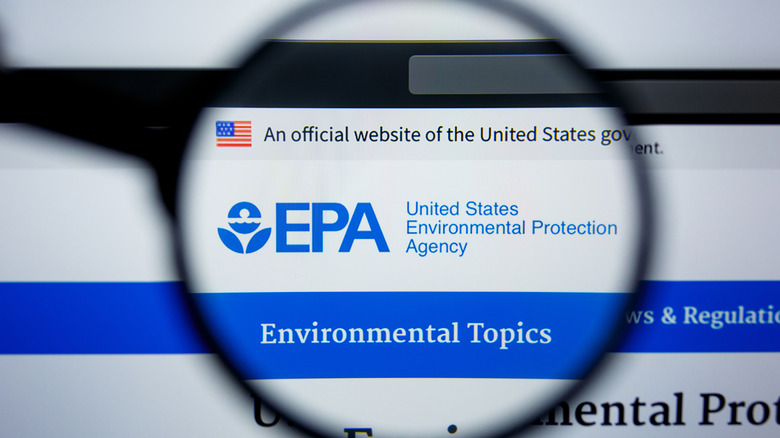How The New Supreme Court EPA Ruling Could Affect Our Health And Climate
Under the Supreme Court's new ruling, the Environmental Protection Agency (EPA)'s power to regulate power plant gas emissions has been restricted, reports Scientific American. The decision now poses new challenges to the U.S. after having pledged to cut emissions in half by the year 2030. Going forward, the EPA could potentially face more roadblocks when it comes to the regulation of automobile emissions, which stands as the predominant source of planet-warming pollution in the U.S. (per Scientific American).
The U.S. Department of Health and Human Services Secretary Xavier Becerra states that the ruling "takes us backwards in time when we badly need to be making progress," as reported by Healthline. Proven to impact human health, air pollution has been linked to an increased risk of heart attacks, lung cancer, Parkinson's disease, neurological conditions, kidney damage, and more. Among those most negatively affected include low-income communities, people of color, and other marginalized groups in both urban and rural environments.
Ways that climate change can affect health
Human health can be impacted through climate change as a direct result of continued air pollution. Healthline explains that extreme weather conditions such as droughts or floods can damage crops in rural farming communities, causing food scarcity and leading prices to rise. Conversely, those who live in cities may see temperatures climb by as much as 7 degrees Fahrenheit due to the heat absorbed and given off by infrastructure including concrete and buildings. Additionally, hotter temperatures create environments in which disease-carrying insects are better able to breed and thrive.
"The EPA will continue to do what it can. And so will the good actors in [the] industry," says Christine Todd Whitman, former EPA administrator under George W. Bush (via Scientific American). Illustrating ways in which leaders can still make a positive impact, Whitman highlights New York governor Kathy Hochul's recent signing of legislation to significantly reduce carbon emissions across the state. Commenting on the role that the EPA will continue to play in the fight against climate change, Whitman tells Scientific American, "We can't move away from our commitment, our responsibility. But we're going to have to become more creative about it going forward."


